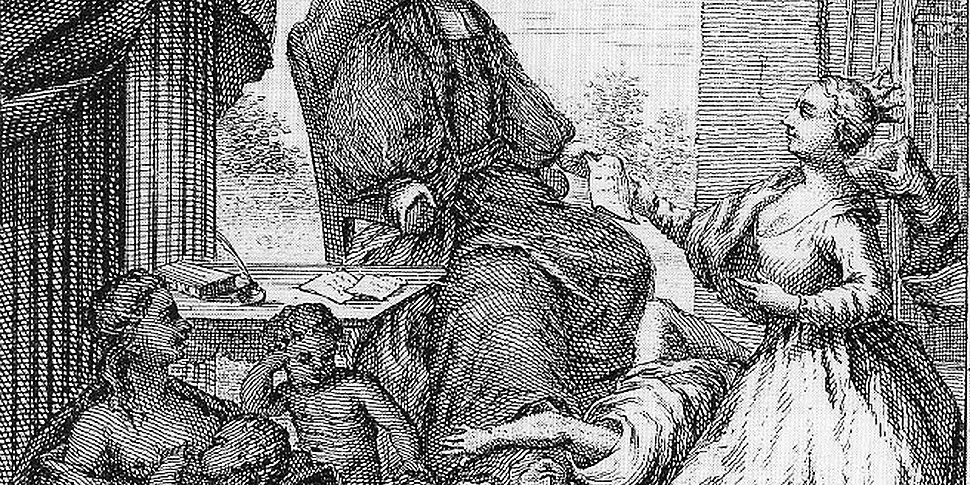As fierce a beak and talon as ever struck—as strong a wing as ever beat, belong to Swift - William Makepeace Thackery
Ireland boasts its fair share of literary giants. Beckett and Wilde stand immense in stage and theatre while figures like Joyce and Yeats cast imposing shadows in the world of poetry and prose. More than 250 years after his death Jonathan Swift remains a star amongst this cast of literary genius. Born in Dublin in 1667 Swift’s sharp wit and mastery of the English language has seen him immortalised as one of history’s greatest satirists.
Though born into a well respected and wealthy family Swift’s youth was not without hardship. His father had died seven months before the boy’s birth and, as the child of a widow, Swift was reliant on the generosity of relations and family friends growing up. While his uncles ensured the child received a good education it was his move to England in 1688 and the patronage of the great diplomat Sir William Temple that would do most to shape Swift.
It was while serving as Temple’s secretary and assistant that Swift was exposed to the politics of Westminster. Except for a short stint spent as a priest in the Church of Ireland Swift remained in Temple’s service until the latter’s death in 1699. The normally harsh Swift had nothing but gentle words for his patron. With little to no support forthcoming from England Swift returned to Ireland to take up the mantle of minister and chaplain once again.
This post-Temple period also saw Swift establish himself as a writer and political mind of some repute. Over the following decades he used his literary skills to create fictitious worlds and influence the politics of reality. He became one of the greatest champions of the Irish and their causes. He wrote against the harsh penal laws and risked the wrath of the Government with works like ‘Drapier’s Letters’ and ‘A Modest Proposal’.
Join Patrick as he talks with a panel of experts about the architect of ‘Gulliver’s Travels’ and one of Ireland’s greatest patriots; Jonathan Swift. How important were his writings in Irish history? What makes him such an unparalleled satirist? Is there any merit to the tales of salacious affairs and relationships? Is ‘Gulliver’s Travels’ the product of a mind descending into madness? And what has been Swift’s lasting legacy?
Patrick also talked with Michael H. Kater about his latest book, 'Weimar: From Enlightenment to the Present', and the biography of this ancient city. A full list of 'Talking History' book recommendations can be found here.









